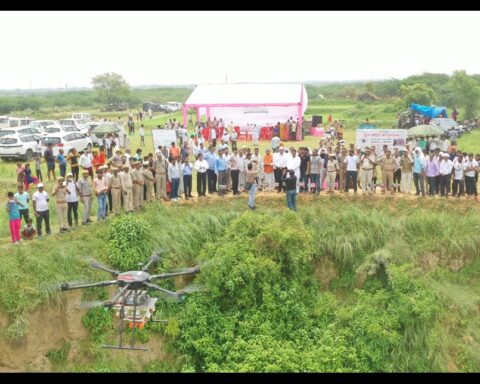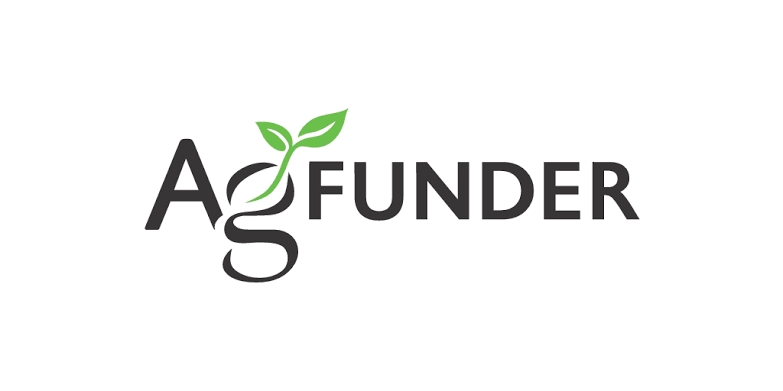AgNext Technologies is India’s leading Agritech start-up that is working to digitize food quality assessment by offering a uniquely integrated, AI-driven SaaS platform. Subrat Panda, Chief Technology Officer of AgNext Technologies was kind enough to answer some of the industry-related questions and about the organization’s latest products. Here is an excerpt from the interaction:
Prateek: Please tell us the vision behind AgNext Technologies.
Subrat Panda: The vision behind AgNext is to solve the problems inherent in food trade by digitizing post-harvest value chains in agriculture. Our aim is to make the food trade ecosystem safer, fairer, and more transparent, driven by deep tech solutions that are highly accessible and scalable.
Prateek: What is the scope of deep-tech models for rapid scalability in the agritech sector?
Subrat Panda: The biggest challenge in developing AI/ML-based deep tech models is training the algorithms by feeding them enough sample data points to increase their efficiency and accuracy. This is critical to ensure that the solutions deployed provide instant results and are highly scalable across multiple geographies. Agribusinesses trade immense quantities of food commodities every day. Manual testing severely limits the accuracy of the quality analyzed, and lab-based solutions are delayed & time-consuming. With AgNext’s AI-driven solutions, huge quantities of food can be assessed, on-ground at the site of trade and results can be provided within a few seconds. These results can then be uploaded on the cloud-based ‘Qualix’ platform, and accessed from the phone from anywhere.
Prateek: Tell us more about Qualix, please.
Subrat Panda: Qualix is AgNext’s full-stack platform for assessing food and integrating procurement across value chains. Through Qualix, we can assess the analysis of multiple commodities on a single platform for easy visibility of procurement and trade operations. Various commodities like milk, tea, grains, oilseeds, pulses, spices, and more can be scrutinized to provide accurate information and insights. With instant on-field quality assessment, Qualix provides ready availability of digital records, real-time data of food quality during procurement, transit, and storage, and ensures transparency through all stages of the supply chain. The innovative technology is enabling agribusiness to increase productivity, bringing standardization in food procurement, saving time and resources, and making the food trade more cost-effective with better food quality.
Prateek: What will be the role of AI, IoT, and Data analytics in the agriculture sector?
Subrat Panda: The scope of tech innovations in the agriculture industry is immense. The application of the trifecta of AI, IoT, and data analytics can transform agriculture as we know it today. By bringing the power of artificial intelligence into the picture, we can remove human errors, bring standardization, and reduce the time taken for critical processes such as food quality assessment. Digital interventions in agriculture can also help to add transparency and traceability in the food trade, which helps to develop better trust among buyers and sellers. Additionally, there is a massive amount of data in the agriculture sector which is fragmented and not utilized. By using the power of AI-based data analytics, there is a great potential to establish effective data management practices to help agribusinesses be more productive and cost-efficient. At the same time, by using deep tech, this data can be organized and analyzed to generate critical insights which can be invaluable for agribusinesses to improve their operations. Undeniably, deep tech innovations are accelerating the engine of growth in the agriculture sector. Agritech is now emerging as a major disruptor by adopting these frontier technologies of artificial intelligence (AI), machine learning (ML), the Internet of Things (IoT), and more.
Prateek: What are the benefits of deploying frontier technology to solve food quality assessment issues from farm to fork?
Subrat Panda: The trillions worth of commodities globally are produced, procured, stored, transported, and consumed without accurate quality assessment. Lack of quality assurance deeply impacts food trade, leading to subjectivity in price-setting. Furthermore, subjectivity in quality assessment leads to human errors, which can incur huge losses for stakeholders across the food value chain. By using frontier technologies, it becomes easy to remove subjectivity from the quality assessment process, thus facilitating standardization, productivity, and profitability for all stakeholders in the food chain. AgNext is at the forefront of implementing deep-tech solutions to solve the problem of quality for agribusinesses. AgNext’s integrated platform Qualix can be used to assess multiple commodities to enable agribusinesses to speed up their procurement and operations processes, optimize costs, provide traceability from farm to fork, and ultimately builds greater trust amongst buyers and sellers.
Prateek: How is replacing subjective sensory quality analysis techniques with standardized AI-driven assessments helpful?
Subrat Panda: Subjective food quality analyses that are based on sensory inputs are not only unstandardized but also biased. The possibility of human error is immense, and the results can’t be independently verified. Thus, it is not unfair to say that sensory quality assessment is an art, not a science. By replacing this technique with AI-driven technologies that can provide instant and objective quality assessments, we can optimize the process by making it quicker, traceable, fact-based and accurate. The application of deep tech has proven to be effective in rooting out human errors. In fact, digitization of food quality assessment can help to reduce food losses in the value chains and increase profits for all stakeholders. Quality lies at a critical junction of the food trade. Accurate assessment of food quality facilitates better food trade and also provides critical insights to agribusiness for better decision-making.
For any such interaction opportunities, you may write to us at [email protected].






